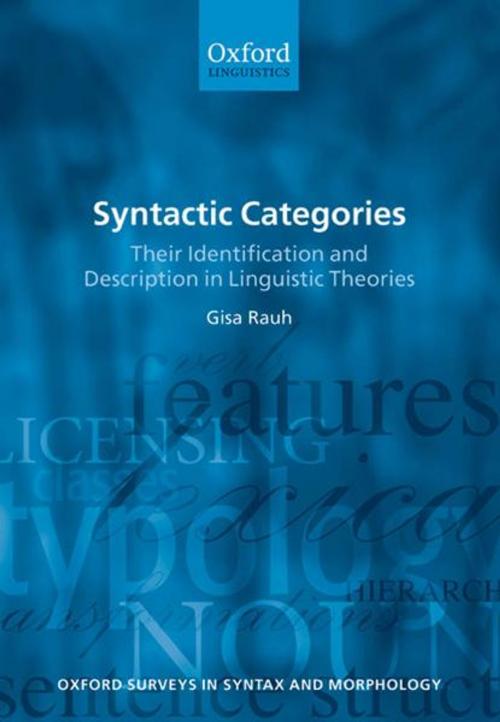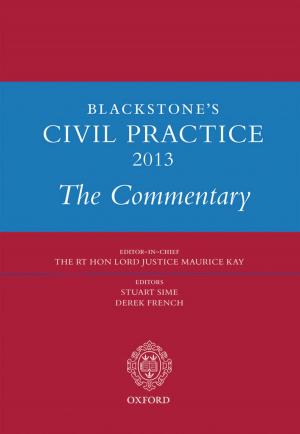Syntactic Categories
Their Identification and Description in Linguistic Theories
Nonfiction, Reference & Language, Language Arts, Linguistics, Religion & Spirituality, Philosophy| Author: | Gisa Rauh | ISBN: | 9780191613753 |
| Publisher: | OUP Oxford | Publication: | June 3, 2010 |
| Imprint: | OUP Oxford | Language: | English |
| Author: | Gisa Rauh |
| ISBN: | 9780191613753 |
| Publisher: | OUP Oxford |
| Publication: | June 3, 2010 |
| Imprint: | OUP Oxford |
| Language: | English |
This book offers a systematic account of syntactic categories - the building blocks of sentences and the units of grammatical analysis - and explains their place in different theories of language. It sets out and clarifies the conflicting definitions of competing frameworks which frequently make it hard or impossible to compare grammars. Gisa Rauh describes the history and nature of traditional and contemporary accounts and definitions of grammatical categories. She explains their properties and use in generative, cognitive, and functional theories, and considers their function in language typology. She distinguishes between the cognitive functions of categories that relate to traditional parts of speech and serve to structure a language's lexicon; and those which determine the syntactic behaviour of the linguistic items they specify. Professor Rauh illustrates her account with a wide range of examples. Her clear and balanced exposition will be welcomed by students and scholars in all branches of linguistics as well as by those in related subjects such as computational science and the philosophy of language.
This book offers a systematic account of syntactic categories - the building blocks of sentences and the units of grammatical analysis - and explains their place in different theories of language. It sets out and clarifies the conflicting definitions of competing frameworks which frequently make it hard or impossible to compare grammars. Gisa Rauh describes the history and nature of traditional and contemporary accounts and definitions of grammatical categories. She explains their properties and use in generative, cognitive, and functional theories, and considers their function in language typology. She distinguishes between the cognitive functions of categories that relate to traditional parts of speech and serve to structure a language's lexicon; and those which determine the syntactic behaviour of the linguistic items they specify. Professor Rauh illustrates her account with a wide range of examples. Her clear and balanced exposition will be welcomed by students and scholars in all branches of linguistics as well as by those in related subjects such as computational science and the philosophy of language.















